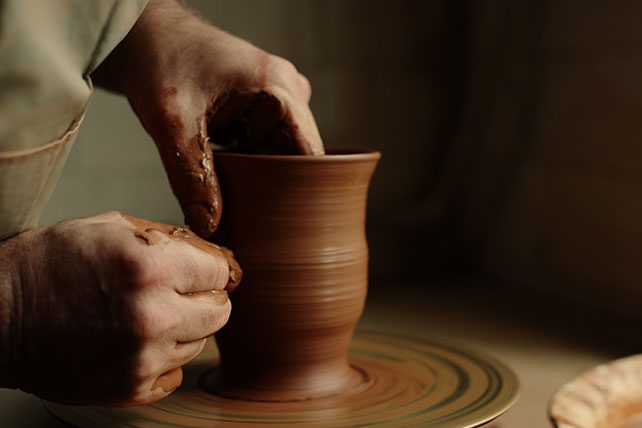The metaphor of the potter and the clay, deeply embedded in biblical literature, serves as a poignant illustration of the dynamic relationship between God and humanity. This imagery, found notably in Jeremiah 18 and Romans 9, offers profound insights into the nature of divine sovereignty, human submission, and the transformative process of spiritual formation. There are many layers of meaning behind this powerful metaphor and its implications for our lives today.
Biblical Foundations of the Potter and the Clay
Jeremiah 18: The Call to Repentance
In Jeremiah 18, God instructs the prophet Jeremiah to visit the potter’s house, where he witnesses a potter shaping and reshaping clay on the wheel. This visual lesson becomes a divine message: just as the potter molds the clay, God shapes the nations and individuals according to His will. The passage underscores God’s authority and our need to yield to His creative process, highlighting the possibility of renewal and change in response to human repentance and obedience.
RELATED: Gospel Renewal in an Age of Deconstruction
The potter symbolizes God Himself—the ultimate craftsman who shapes the destiny of individuals and nations. This portrayal highlights God’s active involvement in our lives and His desire to mold us into vessels of honor, useful and prepared for His purposes. The potter’s authority over the clay serves as a metaphor for God’s sovereignty over creation, reminding us of His right to shape history and human hearts according to His perfect design.
Romans 9: Sovereignty and Mercy
Paul expands on the metaphor in Romans 9, discussing God’s sovereignty in “making out of the same lump of clay one vessel for special occasions and another for common use.” This reference emphasizes God’s freedom and right to shape His creation according to His purpose and plan, challenging us to trust in His wisdom and mercy, even when His ways are beyond our understanding.
Symbolism of Clay in the Bible
In Scripture, clay symbolizes humanity’s fragility, malleability, and inherent dependency on the Creator. Just as clay is formless and pliable in the potter’s hands, we are shaped by God’s will and word. This imagery reminds us of our origin from the dust of the earth and our ultimate reliance on God for form, purpose, and life itself.
To be clay in the hands of the potter means to acknowledge our vulnerability and surrender to God’s shaping process. It is an invitation to trust in His craftsmanship, to be open to transformation, and to submit to His divine plan. This stance requires humility, patience, and faith, especially in times of uncertainty or when the “wheel” of life spins beyond our control.

